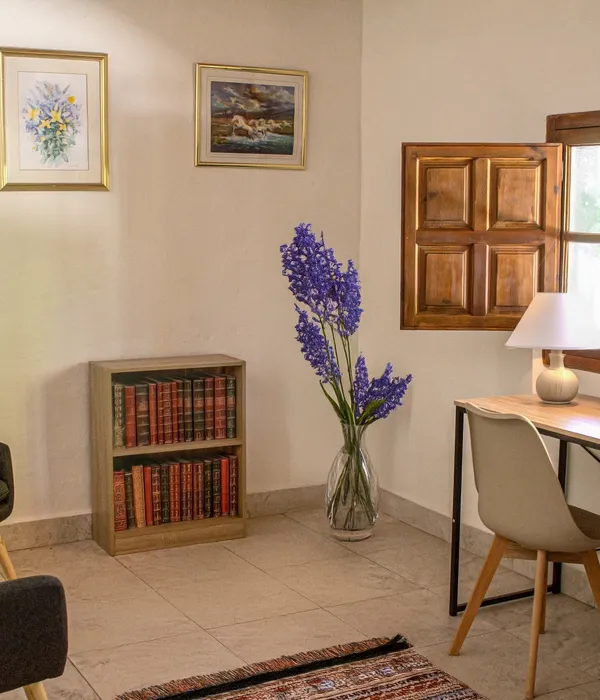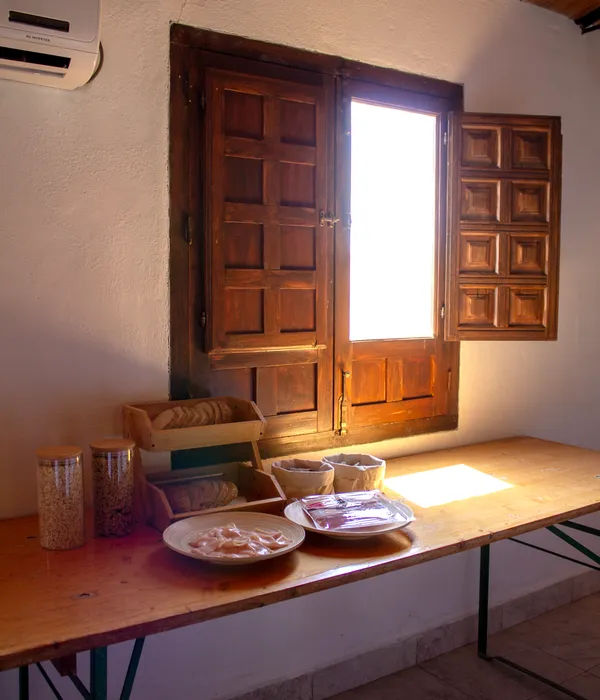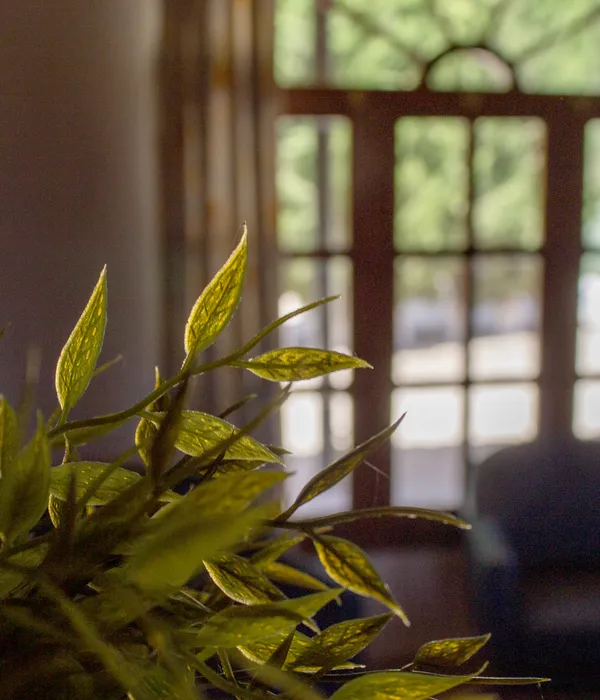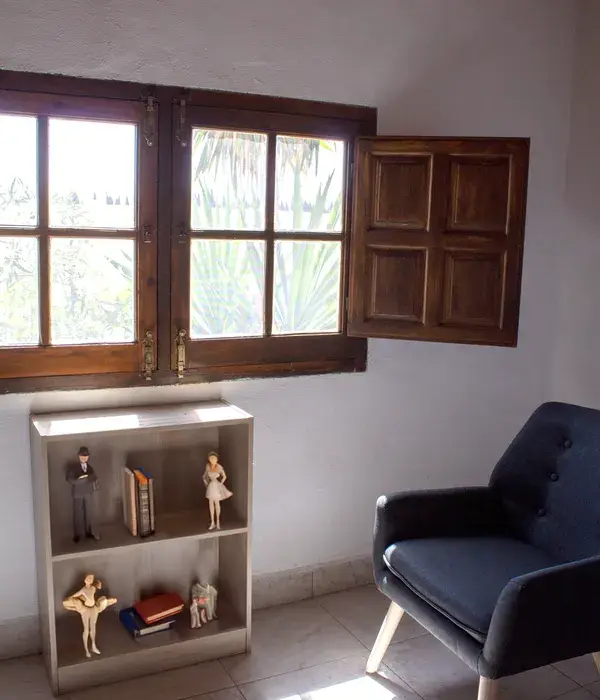Alcohol Rehab Aberdeen
March 26, 2025
At Sierra Recovery, we understand that recovery is a journey anyone can achieve. Nestled in a tranquil, mountainous region of Malaga embraced by nature and horses, our luxurious yet rustic alcoh...
Islington is a city known for its buzzing theatres, historical architecture, and creative culture. Whether you’re enjoying the markets on Camden Passage or soaking in the art at the Estorick Collection, the city radiates charm and community spirit. But beyond those wonders, there’s an issue many families face every day. That is addiction.
Despite the need, drug and alcohol rehab in Islington hasn’t expanded fast enough to meet the growing demand for quality addiction treatment. As a result, many people who struggle with addiction often face long waits and limited resources. Access to compassionate, effective, and personalized rehabilitation services is missing, which is something too important and urgent to put on hold.

When it comes to drug and alcohol rehab in Islington, there are several treatment options that you and other Islington residents can choose from. The main rehab programs can fall into either residential rehab or outpatient treatment.
Residential treatment, also known as inpatient rehab, is a type of treatment where you’ll be living at a dedicated rehab centre for a set time, usually between 28 to 90 days for comprehensive addiction treatment. This type of treatment offers you a break from your harmful environments and triggers to allow you to focus fully on your recovery. While inside a rehab, you’ll follow a structured program involving therapy sessions, group work, nutritious meals, and some therapeutic activities.
Generally, residential treatment provides you with round-the-clock support, medical supervision during a detox, and various therapies to help you identify the underlying cause of your addiction and equip you with essential tools to cope with stressors and triggers.
In addition, if you have a history of relapse and you’re dealing with a dual diagnosis, this type of addiction treatment programme may offer the most intensive and effective path toward long-term recovery.


Outpatient rehab is a flexible program that allows you to receive support while still living at home. Specifically, you’ll attend regular sessions at a treatment centre multiple times a week while maintaining your daily responsibilities. These sessions can include individual therapy, group therapy, and even psychiatric care when needed.
This type of treatment is ideal if you have a strong support system and a stable living environment away from triggers and stressors. It’s also beneficial for you as a step-down phase after you’ve completed inpatient rehab.
However, it’s important to note that if you’re in crisis or surrounded by constant triggers, outpatient treatment may not provide enough structure for you to maintain early sobriety.
Detox is a medically supported process of clearing substances from your system. It’s considered one of the vital steps before you’ll be able to undergo subsequent addiction treatment.
In a supervised drug or alcohol detox programme, healthcare professionals will help you manage your withdrawal symptoms, which range from mild, such as nausea, to more serious ones, such as insomnia and even seizures. While detox alone isn’t enough for you to achieve lasting recovery, it’s where your real journey begins.
Generally, detox provides a safe environment where potential medical complications can be monitored and addressed immediately. It is tailored to your specific needs, considering factors like the type of substance used, the duration, and your overall health.
Mental health treatment is used to treat psychological conditions like anxiety, depression, trauma, burnout, personality disorders, eating disorders, and posttraumatic stress disorder (PTSD), to name a few.
A well-rounded mental health treatment takes a close look at the root causes of the condition, whether it’s about your past experiences, negative thought patterns, emotional regulation problems, or unresolved trauma, and helps you work through them. Along with therapies, medications might be used to manage your symptoms and improve your overall quality of life.
Dual diagnosis treatment is designed for those struggling with both mental health disorders and substance abuse simultaneously. This type of treatment addresses both conditions at the same time, which may include a combination of therapies, medications, and support groups to help you manage symptoms, overcome addiction, and develop coping strategies.
By treating both mental health and addiction together, the likelihood of long-term recovery increases. It also aims to provide a safe and supportive environment where you can heal holistically by balancing mental wellness and substance-free living.
Holistic therapies are unique interventions that help you reconnect with the physical, emotional, and spiritual aspects of yourself. In this type of treatment, you’ll find activities like yoga, mindfulness, massage, art, and equine therapy.
The beauty of holistic treatments is that they offer natural and non-invasive ways to relieve your stress, reduce pain, and improve overall health. Whether it’s through meditation, gentle movement, or creative expression, these therapies help you slow down, tune in, and nurture yourself from the inside out.
In addition, holistic treatment also encourages personal growth and self-awareness, which allows you to explore what works for you. By embracing a combination of physical, emotional, and spiritual practices, you’re empowered to make more mindful choices that support your health.
Part of the comprehensive rehab programme for drug and alcohol addiction is evidence-based therapy, which is essential for addressing the psychological factors contributing to your problematic substance use.
One of the most widely used is Cognitive Behavioral Therapy (CBT), which helps you identify and challenge the negative thought patterns and behaviors that fuel addiction. CBT also teaches you some practical coping strategies to help you manage triggers and stressors in healthier ways.
You may also hear Motivational Interviewing (MI), another effective treatment that focuses on increasing your motivation to change by exploring and resolving ambivalent feelings about change and recovery. In addition, Dialectical Behavior Therapy (DBT) can also be used to help you manage intense emotions and build healthier relationships. All these therapies are grounded in research, which makes them highly effective for supporting your lasting recovery and improving your overall mental wellness.
Although there are National Health Services (NHS) that are free of charge, many people in Islington prefer a private rehab because NHS-funded services often come with long waiting lists and limited access to therapy or even detox.
The cost of private drug and alcohol rehab in Islington depends on many factors, such as the type of care. For example, it may cost around $6500 to $20000 for a 28-day stay for a residential treatment program, which may include accommodation, round-the-clock support, medical treatments, and meals, while outpatient is a little lower at around $1500 to $4000 per month.
The good news is that many private rehabs offer flexible financing options and payment plans to ease your burden.


Islington may be known for its charm and creativity, but beneath the surface, it faces a growing crisis about drug-related activities. Recent figures show that alcohol-related hospital admissions exceed 700 per 100,000 people, which places Islington above the national average. The drug-related harm is also rising very fast as the city ranks among the top 10 in London for drug misuse deaths.
With these alarming figures, easy access to substances, mental health challenges, and the pressures of city life are driving these trends, particularly among young adults. Unfortunately, many residents in Islington face long waiting lists or receive only partial support, with only around half of those needing treatment currently accessing it.
There are several addiction treatment and support groups in Islington available, such as:
They provide free support for both drug and alcohol problems, which includes residential detoxification and rehabilitation.
99-101 Seven Sisters Road, Islington, London
A community where people come together to share their experiences and support one another in living a life free from alcohol.
St Mary’s Church, Upper Street, Islington, London
A safe space for anyone struggling with drug addiction to find hope, connect with others, and build a path toward lasting recovery.
Union Chapel, 19b Compton Terrace, Islington, London
When public services are overwhelmed or involve long waiting lists, private rehab ensures you get the help you need without delay. For instance, private alcohol and drug rehab can offer you fast access to personalized and high-quality care.
Rather than being placed in a standard programme, you’ll receive treatment in a private rehab based on your unique needs and recovery goals. In addition, every stage of the process, such as detox, therapies, and goal planning, is thoughtfully designed to support your lasting recovery and maintain sobriety.
With all the benefits that private rehab can offer, it’s one of the best options you can consider if you’re planning to get treated for drug or alcohol addiction.

While there are drug and alcohol rehab centres in Islington, many local residents are considering getting treated in Sierra Recovery in Spain because of the following advantages:
Our treatment plans are grounded in proven scientific methods like Cognitive Behavioral Therapy (CBT), Dialectical Behavior Therapy (DBT), and Eye Movement Desensitization and Reprocessing (EMDR). Our therapist uses these therapies to help you identify and reframe negative thought patterns related to addiction and to equip you with coping tools to deal with cravings and stressors.
At our centre, we take your privacy seriously. From discreet admissions processes to confidential therapy sessions, every aspect of your care is handled with the utmost respect. You can feel confident that your personal information is protected and the information about your journey remains your own.
With regular assessment, personalized adjustment to your treatment programme, and close observation from our trained staff, we commit to tracking your progress in real time. This means that we can respond to challenges before they become setbacks, which allows us to help build strength and resilience against potential relapse.
We don’t just want you to feel better for now. That’s why everything we do here at Sierra Recovery is centered around long-term recovery. From relapse prevention planning to aftercare programmes, we’re preparing you for the future, not just simply preparing you for your stay in our rehab.
Holistic therapies focus not only on the drug or alcohol addiction symptoms but on treating your entire well-being. Here, we integrate therapies like mindfulness, yoga, nutrition, physical wellness, and equine therapy into your daily schedule. These strategies can reduce your stress and can help you find balance in your physical, emotional, and spiritual wellness.
Addiction is a complex condition that requires a personalized treatment plan. That’s why here at Sierra Recovery, your journey with us begins with an in-depth assessment that leads to a tailored rehab program designed specifically for your needs. From the therapy approach to the daily structure, every detail reflects your goals and vision for recovery.

Our treatment centre in Malaga, Spain, can be easily accessible to the residents of Islington and other parts of the world. If you’re considering our drug and alcohol treatment services, here’s a quick guide you can take a look at:
To travel from Islington to Sierra Recovery, you can book a direct flight from Heathrow Airport to Malaga Airport, with a flight duration of approximately two hours and 45 minutes. Upon your arrival at the Airport, you can rent a car to go to Sierra Recovery, which will take you about 45 minutes, depending on traffic conditions.
When you enter a rehab clinic or center, it marks the beginning of a structured and evidence-based approach to overcoming addiction. Upon admission, you’ll undergo a comprehensive clinical assessment to evaluate your medical history and psychological health profile. All that information can form the foundation for a personalized treatment plan that’s tailored to address the unique physical, emotional, and behavioral aspects of addiction.
Your daily program is carefully structured to balance therapeutic engagement and restorative care that usually involves medications, individual counseling, and group therapy sessions. You’ll also participate in wellness activities, receive nutritionally balanced meals, and have designated time for rest and self-reflection.


Completing your treatment in rehab is a major milestone, but remember that it’s only the beginning of sustained recovery. The weeks and months that follow are critical for reinforcing the progress you’ve made in living a life without drugs or alcohol. Hence, aftercare plays an important role in this process to help you stay sober and build a healthy routine.
Upon discharge, you’ll get a personalized aftercare plan tailored to your needs, which may include ongoing outpatient counseling, relapse prevention strategies, regular check-ins, support groups recommendations, and assistance with reintegration into daily life.
It’s important to note that your transition period may come with challenges, but with the right support in place, you won’t have difficulties dealing with them. Remember that Sierra Recovery remains available to guide you after discharge to ensure you have the tools and resources to stay on track.
Recovery doesn’t have to feel overwhelming. Whether you’re considering rehab for yourself or someone close to you, know that there’s a space here at Sierra Recovery where care is prioritized and treatment is personalized.
We take the time to understand your story and help you build a life that feels meaningful beyond substances. When you’re ready, we’re here to walk that path with you throughout your recovery journey.
CBT is an evidence-based approach and is part of an addiction recovery programme that helps reframe your unhealthful thinking patterns associated with substance use and equips you with coping tools to deal with triggers and stressors.
Typically, rehab programs can run from 28 up to 90 days depending on various factors such as the nature of your condition, severity of symptoms, and your treatment progress.
Aftercare involves various strategies to help you promote long-term recovery and maintain sobriety. It includes therapy sessions, support groups, relapse prevention, and resources to help you navigate life post-treatment.
Group therapy provides connection, shared experiences, and emotional support and helps you reduce feelings of isolation and loneliness that come with addiction.
Yes, withdrawal symptoms are common during the process of detoxification as your body and brain try to adjust to not having the substance anymore.
If you’re physically dependent on certain substances, detox is necessary and essential.
At Sierra Recovery, we understand that recovery is a journey anyone can achieve. Nestled in a tranquil, mountainous region of Malaga embraced by nature and horses, our luxurious yet rustic alcoh...
Basingstoke is a market town that expanded in the 1960s due to an agreement between the London and Hampshire city councils. Before the Second World War, Basingstoke's population was around 13,00...
Bedford in the county of Bedfordshire may be a beautiful town. However, just like any other place in the world, it also faces the same problem with alcohol abuse and addiction. If you reside aro...
Addiction is an issue that any city around the globe is experiencing. The same goes for the alcohol problem in Belfast. If you or your loved one is facing problems with alcohol abuse in Belfast,...
In the county of Berkshire, the effects of alcoholism are wide-ranging. One's harmful drinking not only affects the individuals themselves but their families and communities as well. If you are ...
Bolton is a town located in Greater Manchester. It used to be a mill town but has become a centre for textile production. It became a boomtown thanks to textile production during the Industrial ...
Brighton is seeing problems with alcohol misuse among its residents. While occasional drinking during celebrations is not harmful, some consume alcohol way beyond the recommended limit –especial...
Buckinghamshire is a ceremonial county in South East England and is one of the home counties. The largest settlement in the county is Milton Keynes, and the 2021 census puts the county's populat...